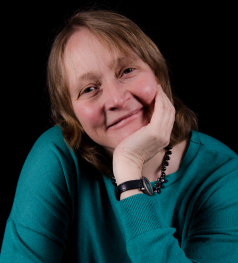PEAH is pleased to interview Dr.Christiane Fischer, as the founder and medical managing director at MEZIS (“Mein Essen zahl ich selbst” — I pay for my own lunch in German)
Dr. Christiane Fischer MD, MPH, PhD
Founder and Medical Managing Director at MEZIS
Interview
PEAH: Dr. Fischer, what does MEZIS mean?
Dr. Fischer: MEZIS (acronym for “Mein Essen zahl ich selbst”—I pay for my own lunch in German), is an initiative founded in 2007 of incorruptible (German speaking) doctors which aims to counteract the “hug strategy” of the pharmaceutical industry.
PEAH: What about the pillars of MEZIS engagement?
Dr. Fischer: They can be summarized as follows:
- MEZIS fights the ubiquitous influence and unwarranted power of the pharmaceutical industry in healthcare.
- MEZIS raises awareness among fellow doctors and medical students that accepting pens, food, trial sponsorship, travel expenses and remuneration for post marketing surveillance studies (PMSS) makes one’s prescribing habits vulnerable to influence.
- MEZIS demands a clear prohibition of influencing and corruption in the regulations of medical professionals.
- MEZIS promotes producer-independent information and Continuing Medical Education programmes (CMEs) as well as medical software that is free from advertising.
PEAH: How does MEZIS work in practice?
Dr. Fischer: If doctors lack one thing, it’s time. Thus MEZIS works in a decentralized manner and communicates via e-mail, a mailing list and through the website http://www.mezis.de/. Our public relations work highlights the subject in the media. Our regional groups form networks of local colleagues.
PEAH: Why MEZIS?
Dr. Fischer: As doctors, we carry great responsibility for our patients! Accurate and objective information without the bias of commercial interests is a necessary prerequisite, especially for prescribing drugs. However:
- According to estimates, 15,000 pharmaceutical representatives visit 20 million practices and hospitals in Germany every year, advertise their products, bring their gifts and remunerate doctors for post marketing surveillance studies (PMSS). They treat doctors to lunch or dinner and pay participation and travel fees for Continuing Medical Education programmes (CMEs).
The result: Advertising for drugs that are usually more expensive without proving any therapeutic progress replaces objective information. Money, gifts and food influence physicians’ prescribing behaviour. The pharmaceutical industry sponsors most CME programmes and can therefore ensure that the “right” topics are covered. Medical speakers are often receiving inappropriate remuneration and even their slides are often provided by sponsors.
- Data from trials by pharmaceutical companies often doesn’t get published or gets published incompletely. Planning and analysis are often rigged to provide a favourable outcome. This data then influences guidelines and publications in medical journals, especially those that are financed through advertising revenues.
- Pharmaceutical companies hire their own authors, who furnish important medical informational homepages with announcements that are biased and guided by their own interests.
- Diagnostic criteria of disease are broadened (disease mongering) to manufacture more conditions that can be medically treated. The dangers of diseases are exaggerated (fear mongering). Patient self-help organizations are sponsored and provided with inadequate information. This increases the pressure on prescribing doctors.
The consequences: spending on drugs increases especially through expensive pseudo-innovations that have no proven additive therapeutic value and potentially have unknown risks. The trust in the doctor-patient-relationships is questioned.
PEAH: Is MEZIS running alone or as part of a worldwide movement/network?
Dr. Fischer: MEZIS is part of the world wide “No Free Lunch” network. There are people from Egypt, Turkey, Brazil, Belgium, Switzerland and Denmark, who are members of MEZIS. In France, India, the Netherlands, Austria, Chile, Italy, Australia, Spain, No Free Lunch groups and initiatives have already been founded and they are spreading the No Free Lunch idea. Corruption in the health care system is a worldwide global issue and has many different faces. Solving those problems, however, also unite people in rich and poor countries. MEZIS and all No Free Lunch initiatives show that another medicine is possible! Worldwide!
PEAH: Thank you Dr. Fischer for your insightful answers and commitment.
Links
German doctors help Indians fight pharma influence http://voxbal.com/world/german-doctors-help-indians-fight-pharma-influence/
“No Free Lunch” groups in Australia, France, India, Italy, Austria, Netherlands, Britain and Chile as well as international networks http://www.mezis.de/wp-content/uploads/2015/12/N153e.pdf
MEZIS – part of world-wide “No Free Lunch” network of physicians http://www.uni-wh.de/en/news/details/artikel/mezis-part-of-world-wide-no-free-lunch-network-of-physicians/
Das Gespräch mit Dr. med. Christiane Fischer, Geschäftsführerin von „Mezis – Initiative unbestechlicher Ärztinnen und Ärzte“ „Eine andere Medizin ist möglich“ http://www.aerzteblatt.de/archiv/179194
Corruption in healthcare: a problem in Germany, too http://ijme.in/index.php/ijme/article/view/1930/4193
—————————————————
Dr. Christiane Fischer was born in 1967 in Emden and grew up in the black forrest in Germany. She studied medicine in Homburg/Saar and Heidelberg and is from her postgraduation Master of Public Health (MPH). From 1999 untill 2013 she worked as the executive director of the BUKO Pharma-Kampagne focussing the impact of patents on access to drugs in poor countries. In 2007 she founded MEZIS and was part of the board until 2013. Since then she works as the Medical Director. Since 2012 she is member of German Ethics Council.
